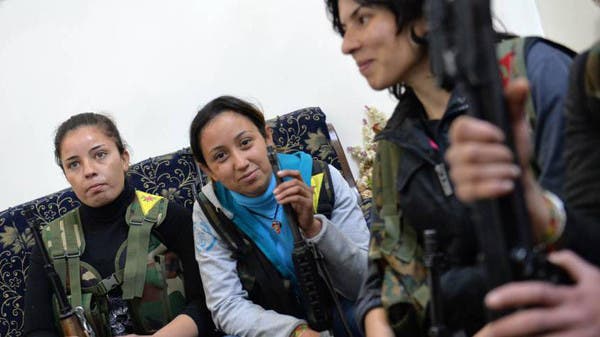Kurds in Iraq, Syria work as shield against al-Qaeda

Despite differences between Kurdish parties in Iraq and Syria, they have come together to prevent groups linked to al-Qaeda from infiltrating their territories.
Syrian Kurdish fighters were able to stop them from controlling Yaaroubiyeh, a strategic border crossing with Iraq, on Sunday.
Analysts say Kurds are refusing to provide fertile ground for radical Islamist groups.
Kurdish parties in Syria and Iraq “are nationalist parties” that “believe in liberalism and secularism, and there’s no way that the Kurdish Muslim nation could accept the Islamization of the region or their areas,” journalist and political analyst Haval Khozaei told Al Arabiya.
“Kurdish citizens themselves work like police, and report if they find anything suspicious,” added Khozaei, who is based in the semi-autonomous Iraqi Kurdistan.
The fight against groups linked to al-Qaeda has been welcomed by Arabs in Syria’s mixed northwestern city of Ras al-Ain, where Kurdish fighters of the People’s Defense Units (YPG) routed radical Islamists last month.
In neighboring Iraqi Kurdistan, the Kurdish government has heightened security measures after al-Qaeda claimed responsibility for an attack that killed at least six people in Erbil in September.
“Stability is the main reason that international investments are heading to Kurdistan, including oil companies,” rather than the rest of Iraq, Kurdish journalist Abdulrahman Basha told Al Arabiya.
Meanwhile, commentators say they do not believe that the Syrian conflict’s spill-over has exacerbated tensions between groups in Iraqi Kurdistan.
“Differences between Kurdish parties have long been there,” Khozaei said.
The Democratic Union Party (PYD), a Syrian-Kurdish group accused of links with the Syrian government, has been at loggerheads with other Syrian-Kurdish factions over control of Kurdish areas in the country.
In 2012, the PYD signed an agreement with all other Kurdish groups in Syria to form a united force and a joint administration in Erbil.
However, the PYD does not want any control from Iraqi-Kurdish political parties, commentators added.
“There are for sure differences between Kurdish parties, but these parties could easily stop their schism when it comes to their common denominator, and that’s striving for the rights of Kurdish people in Syria,” Basha said.
On Oct. 13, Iraqi Kurdistan’s President Massoud Barzani said his government “won’t hesitate in directing strikes” against “terrorist criminals in any place,” including neighboring Syria. “Our duty is to protect the Kurds if we are able.”